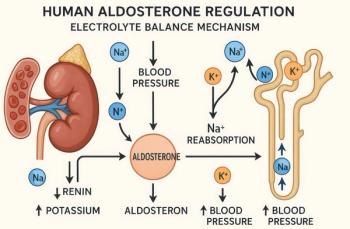
β-Blocker Therapy After Acute MI
My patient has hypertension, a history of a recent myocardial infarction (MI), and a resting heart rate in the 50s. Which β-blocker is preferred in this setting-or should β-blockers be avoided? -- Edwin Kellerman, MD, Merion Station, Pa
My patient has hypertension, a history of a recent myocardial infarction (MI), and a resting heart rate in the 50s. Which β-blocker is preferred in this setting-or should β-blockers be avoided?
-- Edwin Kellerman, MD,
Merion Station, Pa
According to American Heart Association/ American College of Cardiology guidelines, all patients who have had an acute MI should receive β-blockers unless they have contraindications to such therapy.1 Contraindications include:
•β-Blocker allergy.
•Bradycardia (heart rate < 60 beats per minute) on day of discharge or day before discharge while not receiving β-blockers.
•Second- or third-degree heart block on ECG on arrival or during hospital stay, in patients without a pacemaker.
I probably would not give this patient a β-blocker unless he is receiving a rate-lowering medication that can be stopped and an alternative drug substituted. If such a substitution can be made, then a β-blocker should be administered for cardioprotection.
In outcomes trials, propranolol, timolol, metoprolol tartrate, acebutolol, and carvedilol reduced cardiovascular mortality.2 Metoprolol tartrate has indications for acute MI and protection up to 3 months. “Although the efficacy of [metoprolol tartrate] beyond 3 months has not been conclusively established, data from studies with other β-blockers suggest that treatment should be continued for 1 to 3 years.”3 Other β-blockers have not shown a protective effect. The Table shows the indications for each of the β-blockers marketed in the United States.
-- L. Michael Prisant, MD,
Professor of Medicine
Director of Hypertension & Clinical Pharmacology
Medical College of Georgia
Augusta
References:
REFERENCES:
1.
Krumholz HM, Anderson JL, Brooks NH, et al. ACC/AHA clinical performance measures for adults with ST-elevation and nonâST-elevation myocardial infarction: a report of the American College of Cardiology/American Heart Association Task Force on Performance Measures (Writing Committee to Develop Performance Measures on ST-Elevation and NonâST-Elevation Myocardial Infarction).
Circulation.
2006;113:732-761.
2.
Freemantle N, Cleland J, Young P, et al. β-Blockade after myocardial infarction: systematic review and meta regression analysis.
BMJ.
1999;318:1730-1737.
3.
Lopressor [package insert]. East Hanover, NJ: Novartis Pharmaceuticals Corporation; 2008.
Newsletter
Enhance your clinical practice with the Patient Care newsletter, offering the latest evidence-based guidelines, diagnostic insights, and treatment strategies for primary care physicians.

































































































































